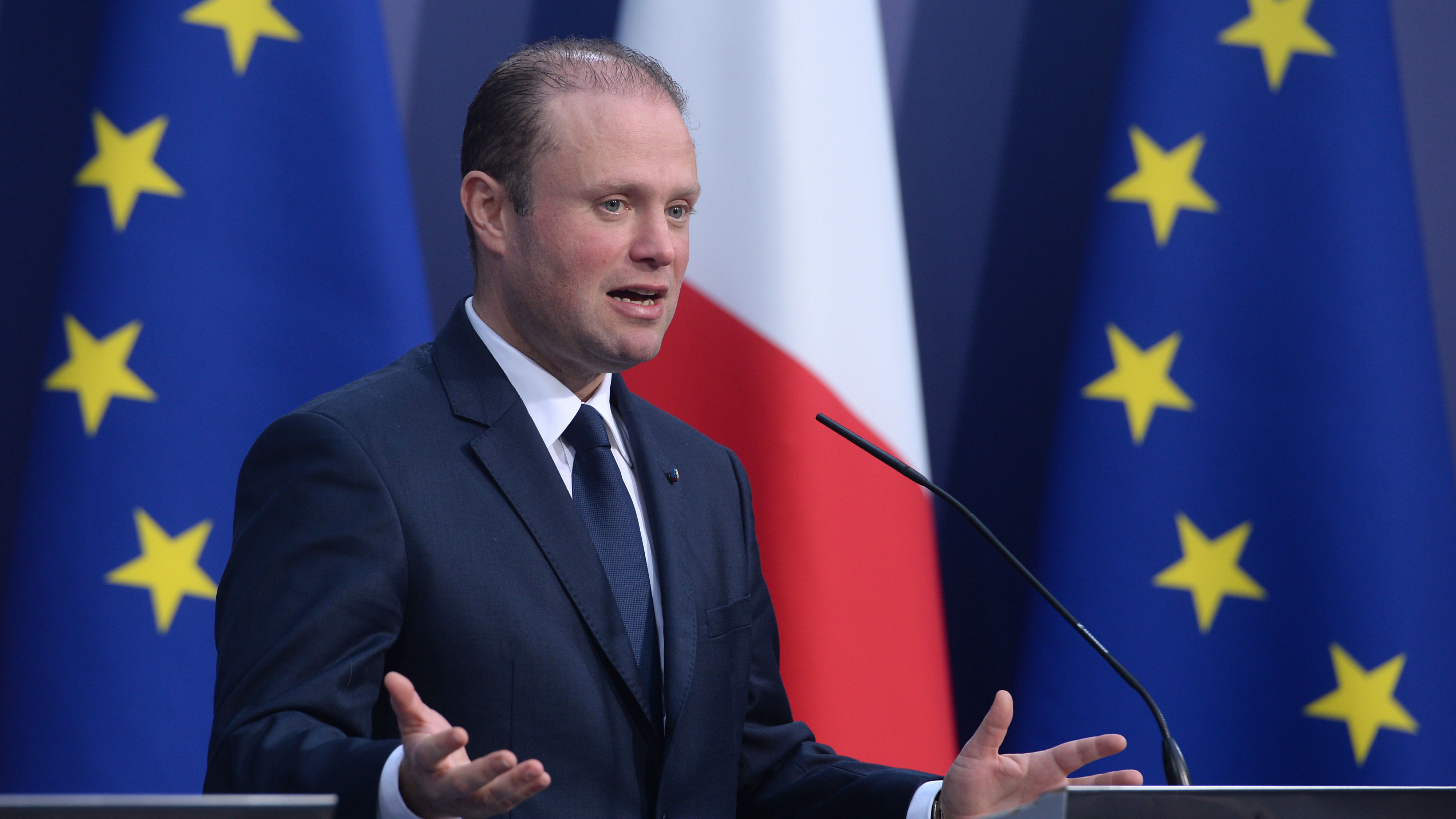Malta’s PM announces he will stand down as national crisis deepens
Joseph Muscat will stay on until next month despite calls for immediate exit

A free daily email with the biggest news stories of the day – and the best features from TheWeek.com
You are now subscribed
Your newsletter sign-up was successful
The embattled prime minister of Malta, Joseph Muscat, has resigned, as the the national crisis over the murder of anti-corruption journalist Daphne Caruana Galizia intensifies.
Speaking on television, Muscat said he would step down in the new year and that the ruling Labour Party would begin the process to choose his successor on 12 January.
According to The Guardian, protesters gathered on the streets for Muscat’s address, “marking the conclusion of an emotional and angry demonstration” demanding the PM’s immediate resignation over the inquiry into Caruana Galizia’s death.
The Week
Escape your echo chamber. Get the facts behind the news, plus analysis from multiple perspectives.

Sign up for The Week's Free Newsletters
From our morning news briefing to a weekly Good News Newsletter, get the best of The Week delivered directly to your inbox.
From our morning news briefing to a weekly Good News Newsletter, get the best of The Week delivered directly to your inbox.
The investigative journalist, who had exposed corruption at the highest level in Muscat’s government, was killed in October 2017 after a bomb planted under the driver’s seat of her hire car exploded while she was travelling away from her home in the village of Bidnija.
CNN reports that in what was to be the final entry on her blog Running Commentary, she wrote: “There are crooks everywhere you look now. The situation is desperate.” She had filed a police report 15 days before saying she was being threatened.
On Saturday, Malta’s richest man, the property and gambling tycoon Yorgen Fenech, was charged with Galizia’s murder. Investigators have uncovered links between Fenech and Keith Schembri, who until last week was Muscat’s chief of staff.
According to The Times of Malta, there was this week calls during a six-hour meeting of Muscat’s cabinet for an investigation into Schembri.
A free daily email with the biggest news stories of the day – and the best features from TheWeek.com
–––––––––––––––––––––––––––––––For a round-up of the most important stories from around the world - and a concise, refreshing and balanced take on the week’s news agenda - try The Week magazine. Start your trial subscription today –––––––––––––––––––––––––––––––
In his resignation speech, Muscat expressed “deep regret” for Caruana Galizia’s murder and spoke of the need for a “fresh page”. “The sensations of genuine sadness and anger for this murder are justified”, he said.
“In the same manner, violence, and disorder, within the pretext of a protest, are not justified in a democracy. This case cannot define everything that our country is.”
The Guardian said that though Muscat’s departure brings to an end his seven-year term as the leader of the European Union’s smallest member state, “it is unlikely to draw a line under the scandal engulfing his administration”.
In 2017, Galizia’s family raised concerns over the police probe into her killing, which is being overseen by an officer married to a government minister who was once the focus of critical articles by the journalist.
-
 Key Bangladesh election returns old guard to power
Key Bangladesh election returns old guard to powerSpeed Read The Bangladesh Nationalist Party claimed a decisive victory
-
 Judge blocks Hegseth from punishing Kelly over video
Judge blocks Hegseth from punishing Kelly over videoSpeed Read Defense Secretary Pete Hegseth pushed for the senator to be demoted over a video in which he reminds military officials they should refuse illegal orders
-
 Trump’s EPA kills legal basis for federal climate policy
Trump’s EPA kills legal basis for federal climate policySpeed Read The government’s authority to regulate several planet-warming pollutants has been repealed
-
 Epstein files topple law CEO, roil UK government
Epstein files topple law CEO, roil UK governmentSpeed Read Peter Mandelson, Britain’s former ambassador to the US, is caught up in the scandal
-
 Iran and US prepare to meet after skirmishes
Iran and US prepare to meet after skirmishesSpeed Read The incident comes amid heightened tensions in the Middle East
-
 Israel retrieves final hostage’s body from Gaza
Israel retrieves final hostage’s body from GazaSpeed Read The 24-year-old police officer was killed during the initial Hamas attack
-
 China’s Xi targets top general in growing purge
China’s Xi targets top general in growing purgeSpeed Read Zhang Youxia is being investigated over ‘grave violations’ of the law
-
 Panama and Canada are negotiating over a crucial copper mine
Panama and Canada are negotiating over a crucial copper mineIn the Spotlight Panama is set to make a final decision on the mine this summer
-
 Why Greenland’s natural resources are nearly impossible to mine
Why Greenland’s natural resources are nearly impossible to mineThe Explainer The country’s natural landscape makes the task extremely difficult
-
 Iran cuts internet as protests escalate
Iran cuts internet as protests escalateSpeed Reada Government buildings across the country have been set on fire
-
 US nabs ‘shadow’ tanker claimed by Russia
US nabs ‘shadow’ tanker claimed by RussiaSpeed Read The ship was one of two vessels seized by the US military